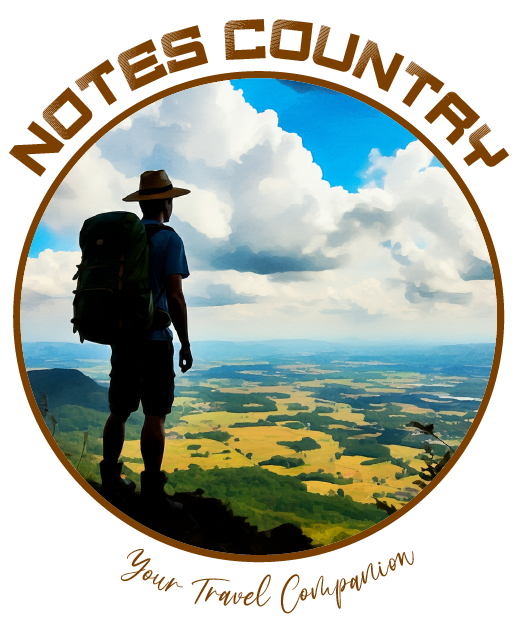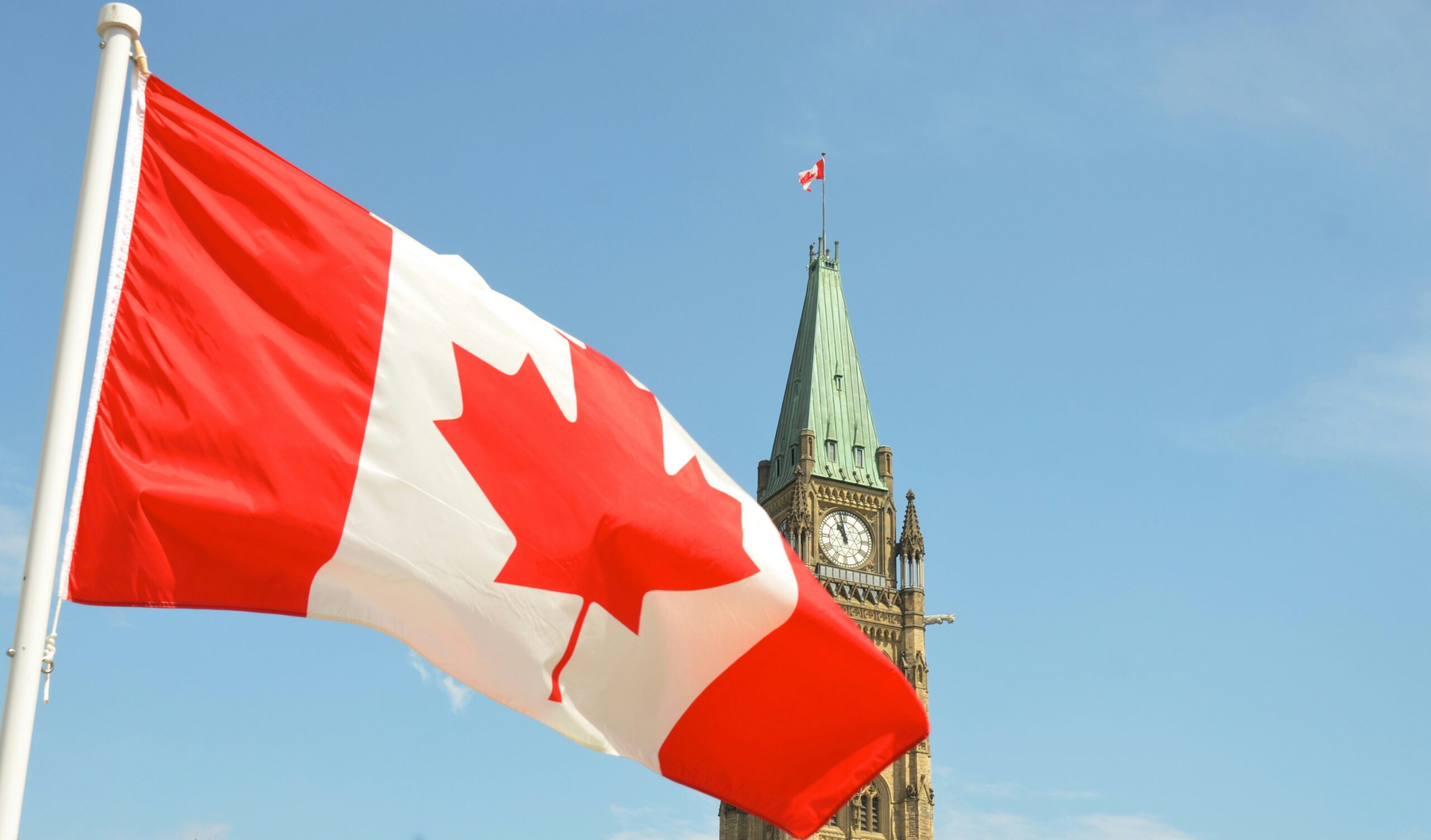Canada, the world’s second-largest country, is a breathtaking tapestry of diverse landscapes, cultures, and experiences. From the rugged coastlines of the Atlantic to the towering peaks of the Rockies, and from the cosmopolitan cities to the vast northern wilderness, Canada offers an unparalleled adventure for every type of traveler. With its friendly locals, pristine nature, and rich cultural heritage, Canada invites you to explore its wonders in all seasons.
Must-see attractions
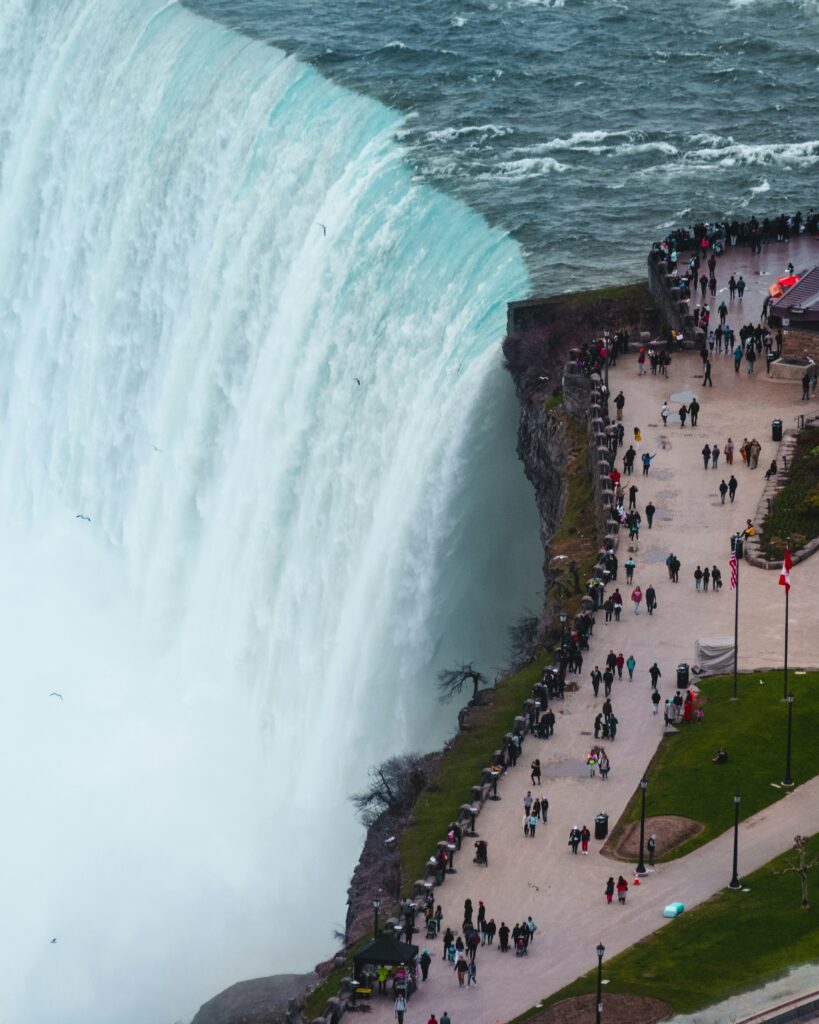
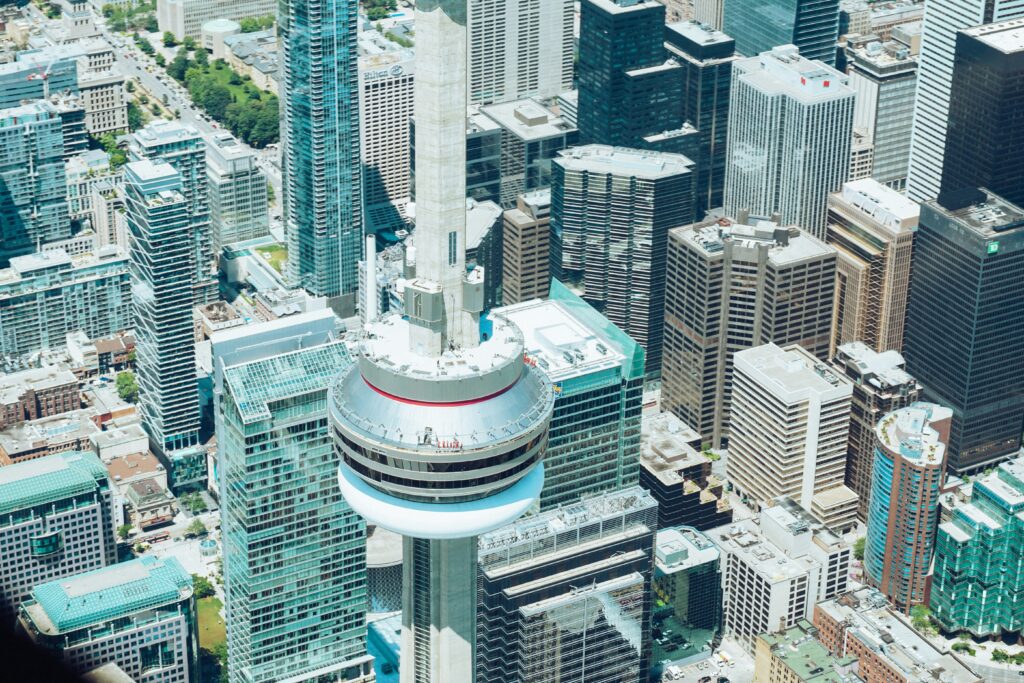
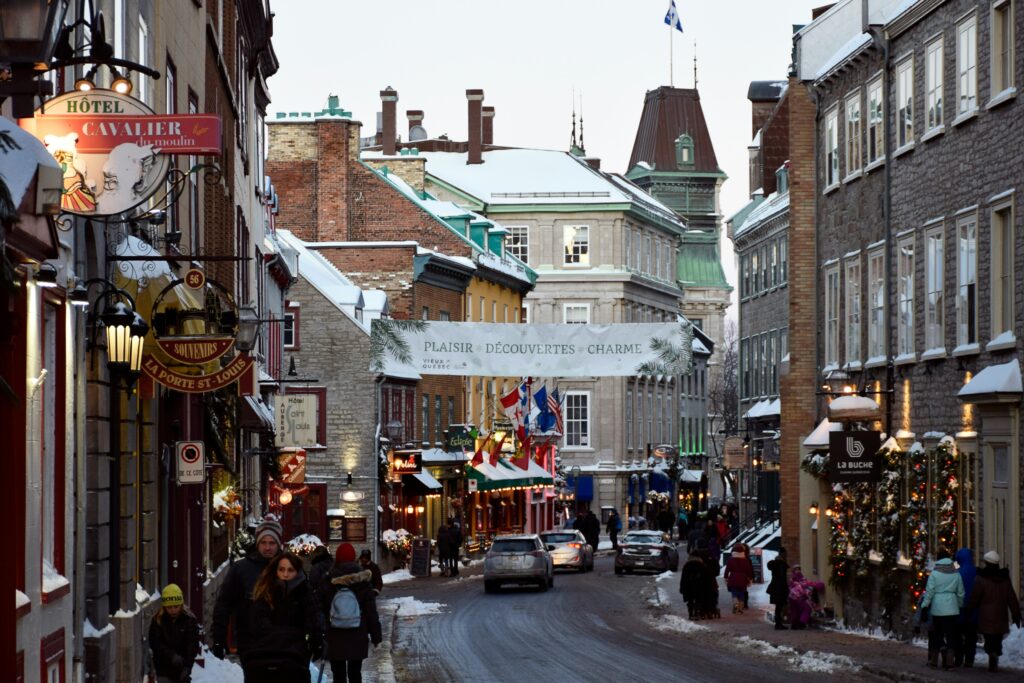
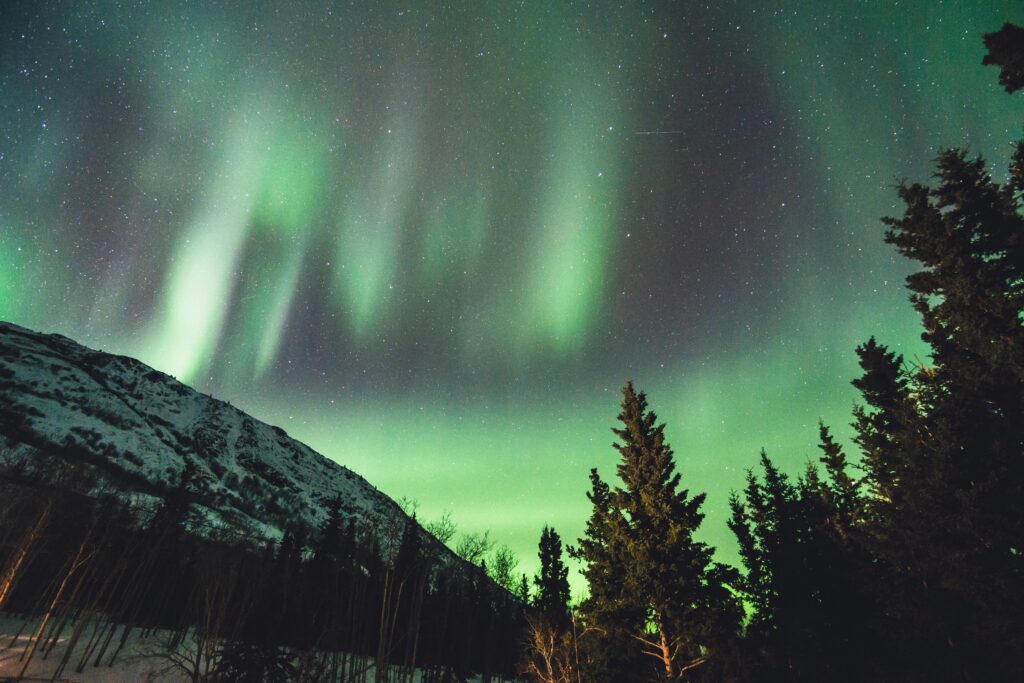
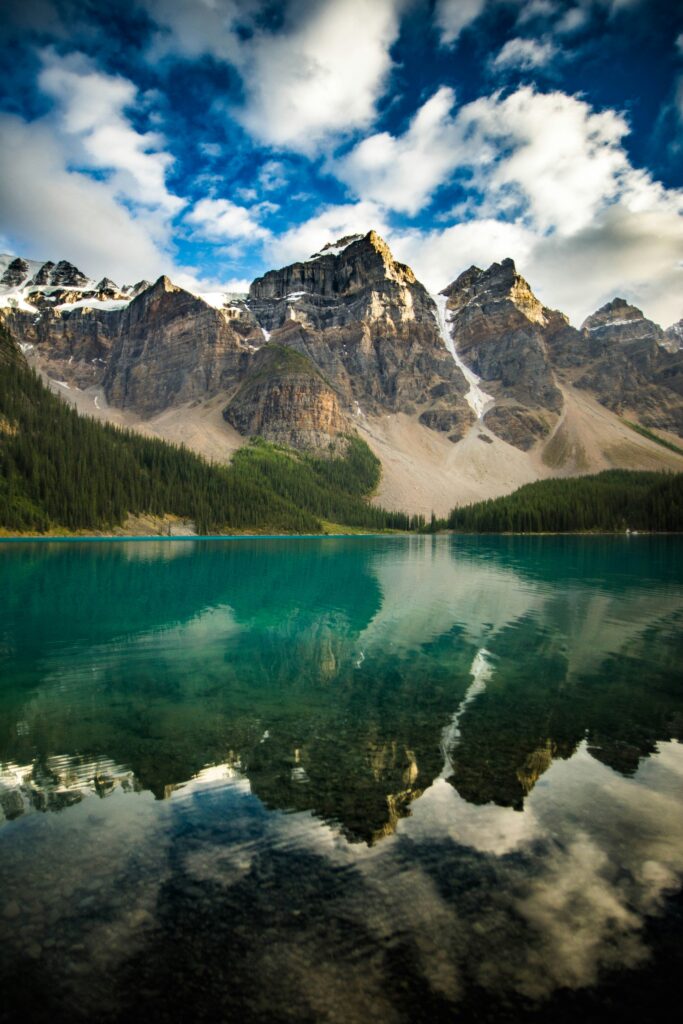
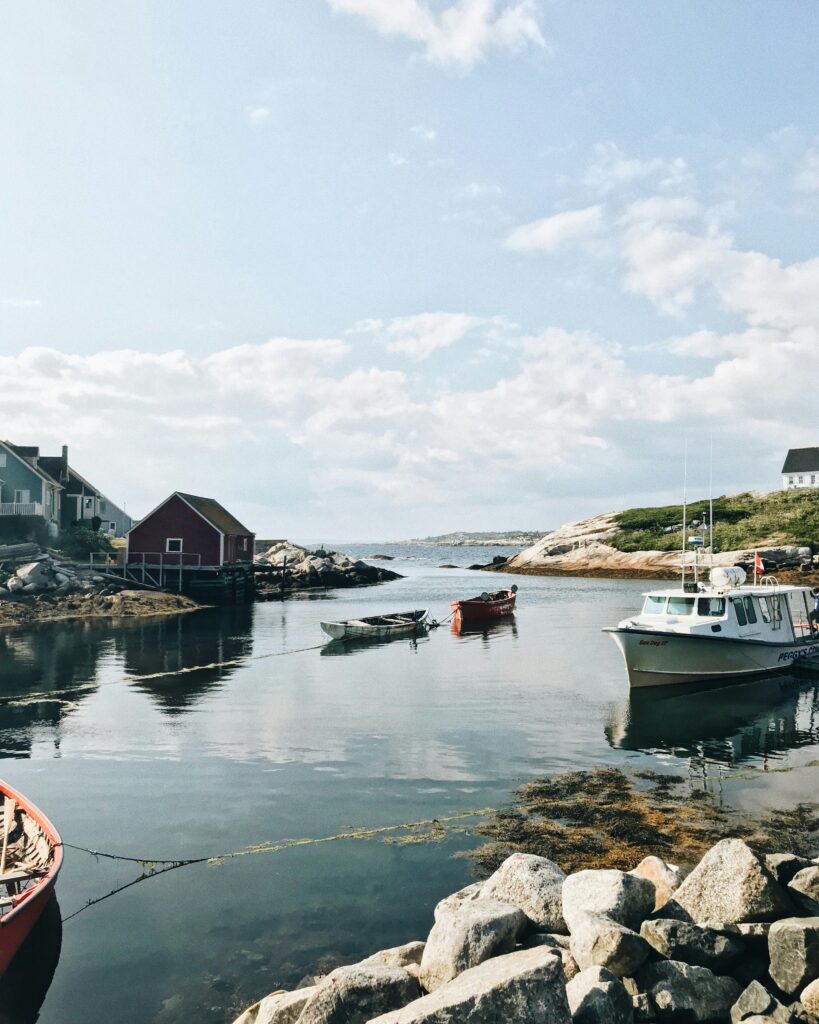
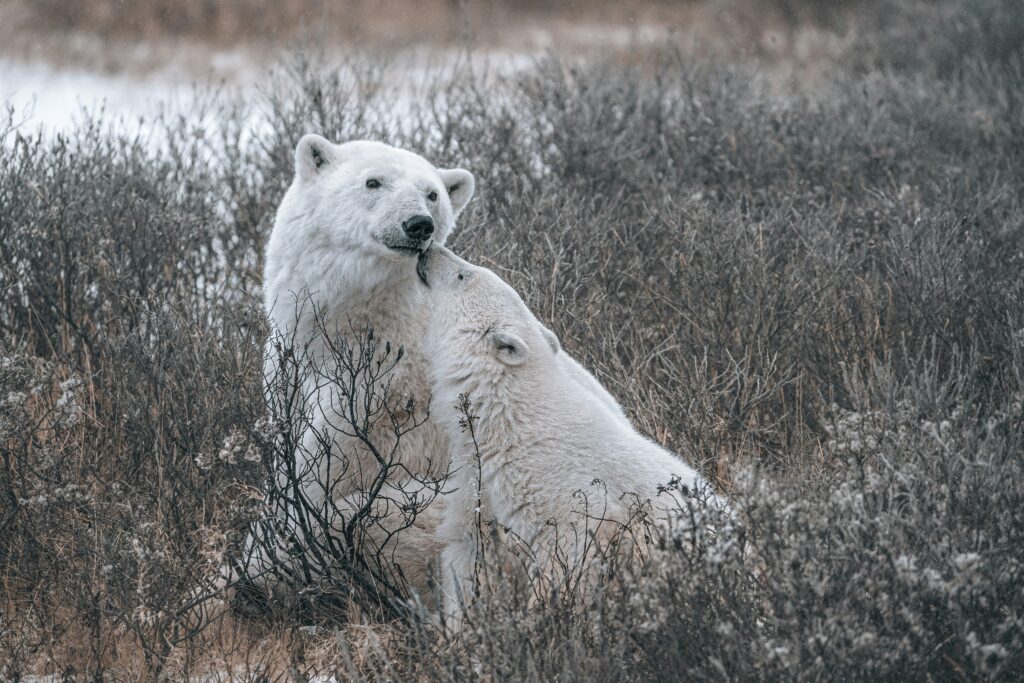
- Niagara Falls: Witness the raw power of nature as millions of gallons of water cascade over these iconic falls.
- Banff National Park: Immerse yourself in the stunning beauty of turquoise lakes, snow-capped mountains, and abundant wildlife.
- Old Quebec: Step back in time as you wander the cobblestone streets of this UNESCO World Heritage site.
- Northern Lights: Marvel at the ethereal dance of the Aurora Borealis in the Yukon, Northwest Territories, or Nunavut.
- CN Tower: Ascend this architectural wonder for panoramic views of Toronto and Lake Ontario.
- Peggy’s Cove: Visit this picturesque fishing village and its iconic lighthouse on Nova Scotia’s craggy coast.
- Polar Bears of Churchill: Experience a once-in-a-lifetime encounter with these majestic creatures in their natural habitat.
Popular cities or regions
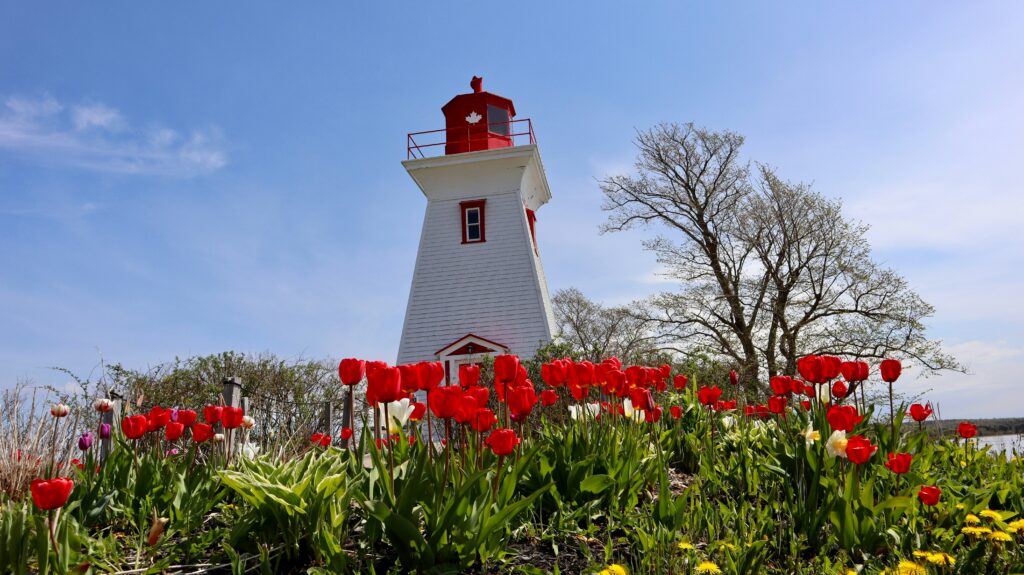
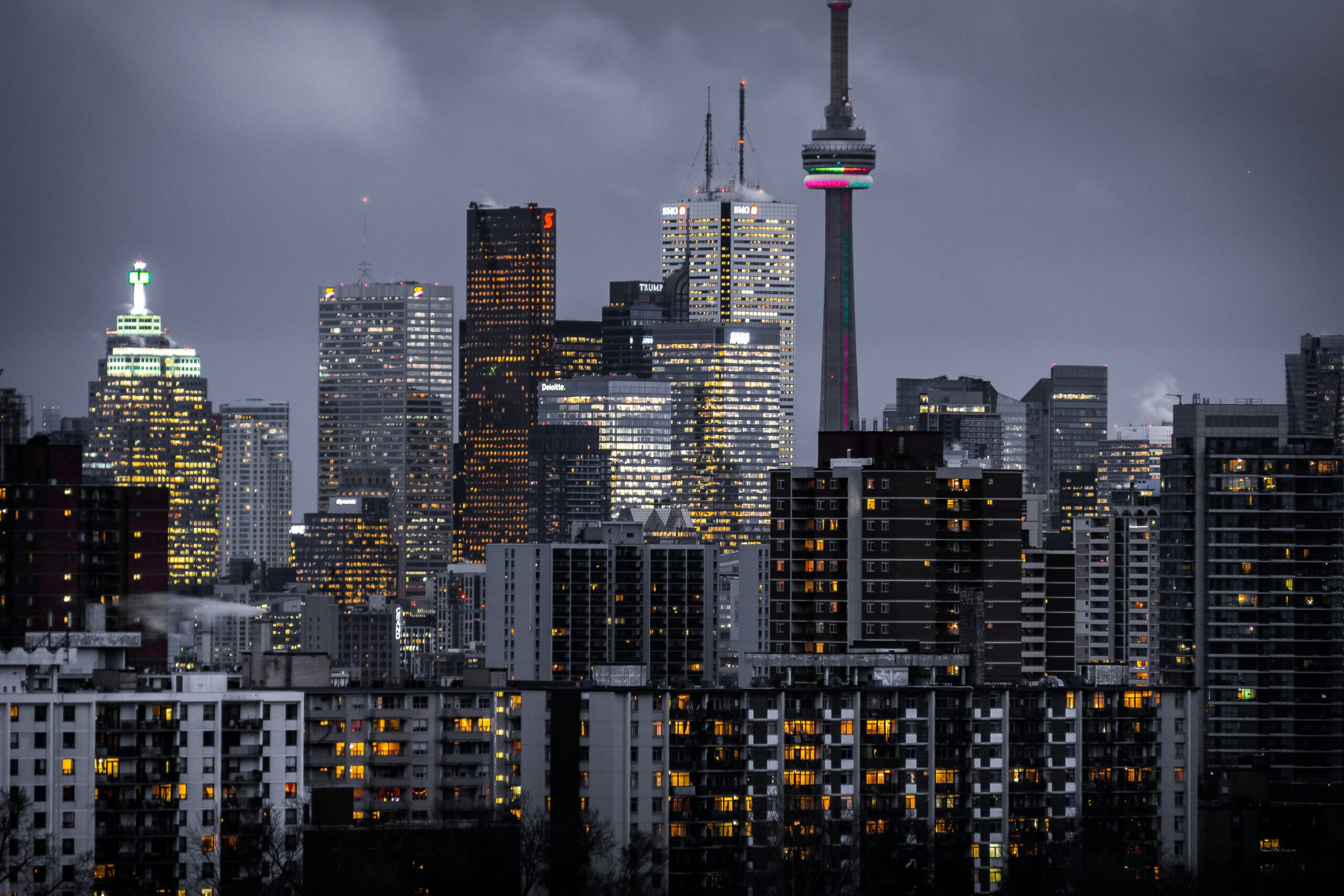
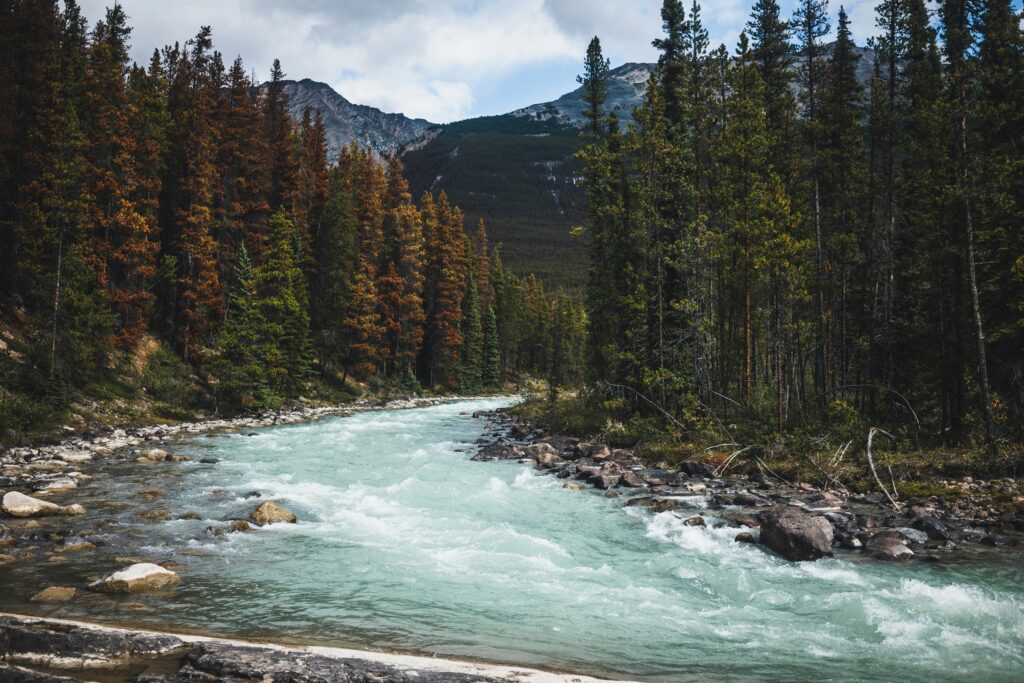
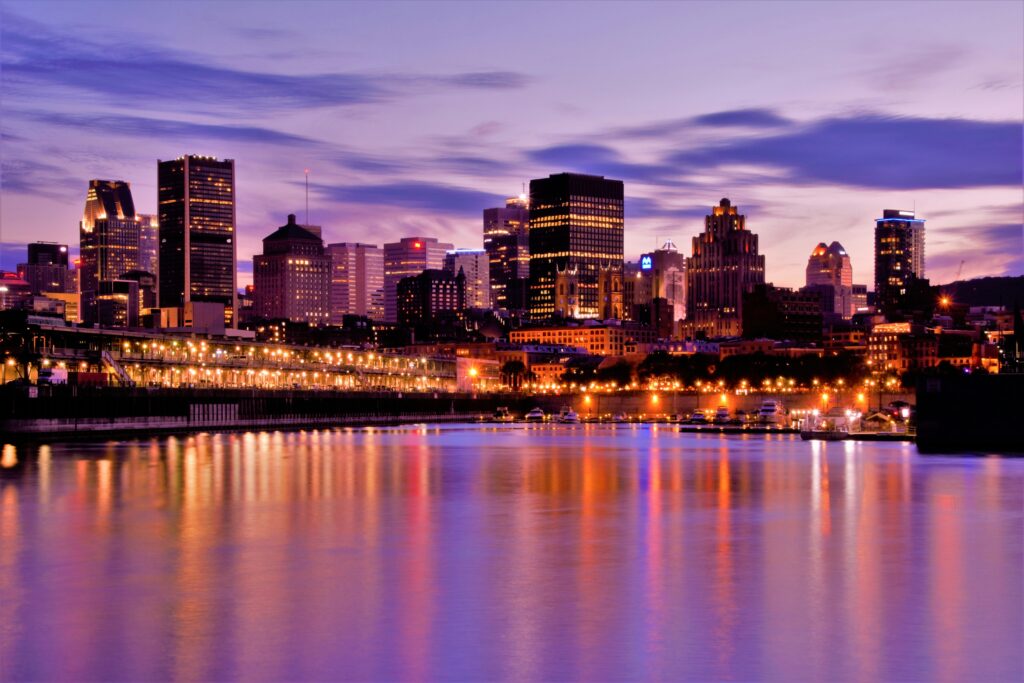
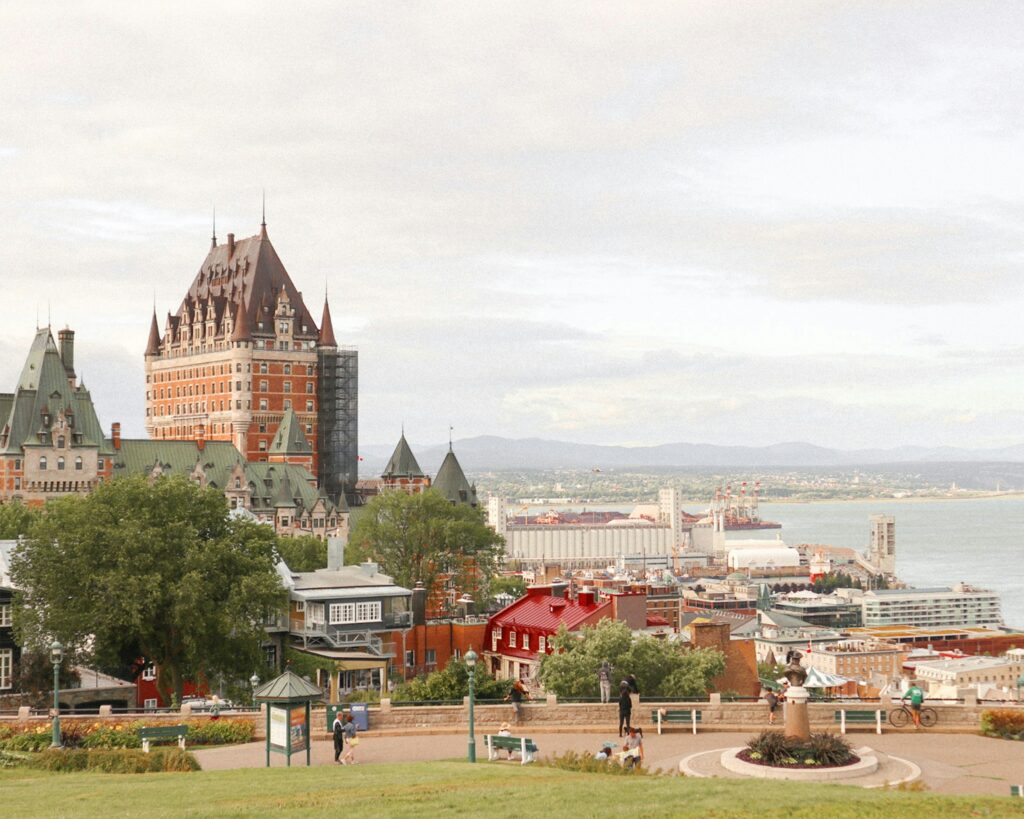
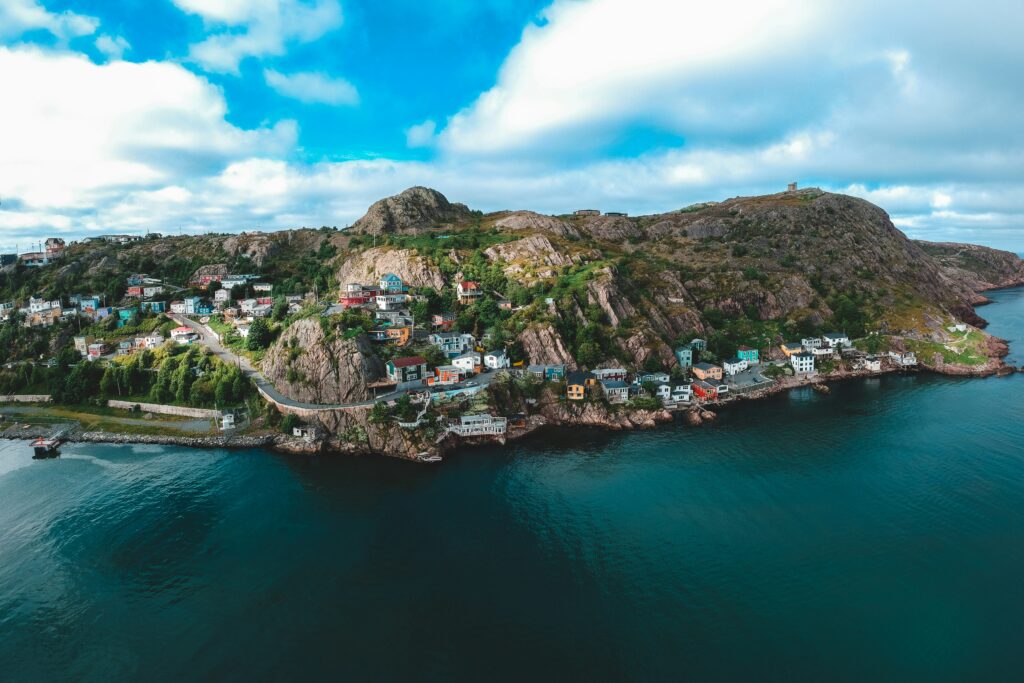
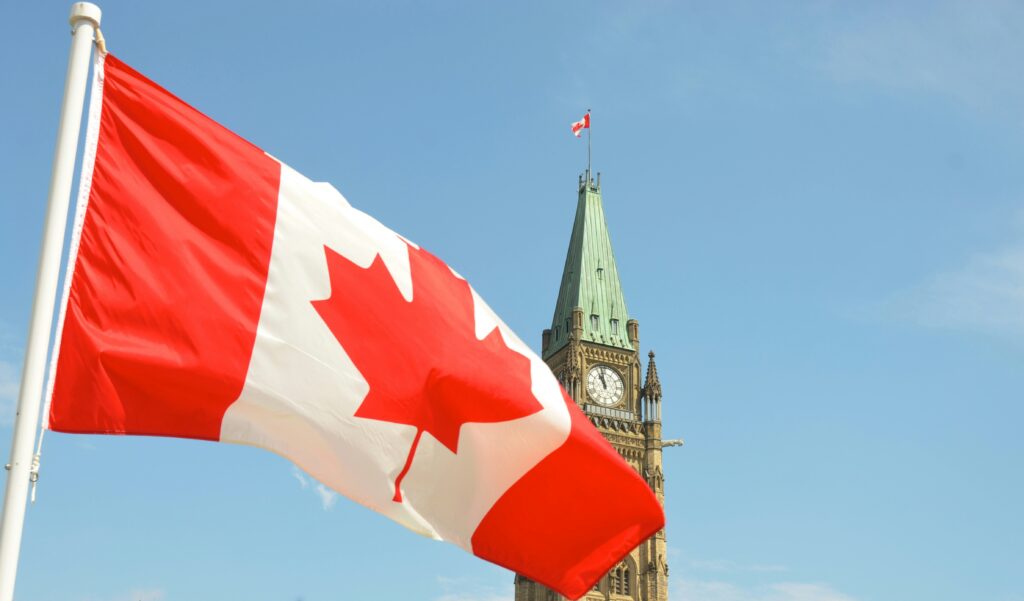
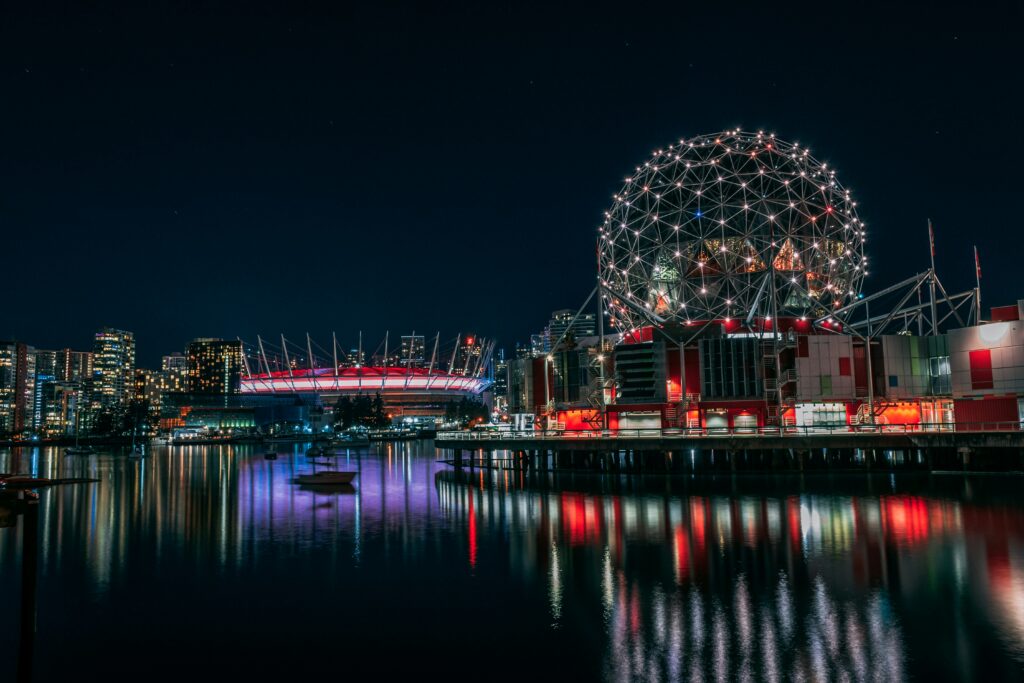
- Vancouver: A vibrant coastal city surrounded by mountains, known for its diverse culture and outdoor activities.
- Toronto: Canada’s largest city, a multicultural metropolis offering world-class dining, shopping, and entertainment.
- Montreal: Experience European charm in North America, with its bilingual culture, historic architecture, and renowned festivals.
- Banff and Jasper: These Rocky Mountain towns are gateways to some of the most spectacular scenery in North America.
- Prince Edward Island: Discover rolling green hills, red-sand beaches, and the home of Anne of Green Gables.
- Quebec City: Immerse yourself in French-Canadian culture in North America’s only walled city north of Mexico.
- Newfoundland and Labrador: Explore rugged coastlines, colorful fishing villages, and ancient Viking settlements.
Suggested itineraries
Eastern Canada Essence (10 days):
- Toronto (3 days): CN Tower, Royal Ontario Museum, day trip to Niagara Falls
- Ottawa (2 days): Parliament Hill, Canadian Museum of History
- Montreal (3 days): Old Montreal, Mount Royal, Biodome
- Quebec City (2 days): Old Quebec, Montmorency Falls
Western Canada Adventure (2 weeks):
- Vancouver (3 days): Stanley Park, Granville Island, Capilano Suspension Bridge
- Victoria (2 days): Butchart Gardens, British Columbia Parliament Buildings
- Whistler (2 days): Mountain biking, hiking, or skiing (depending on season)
- Banff National Park (4 days): Lake Louise, Moraine Lake, Icefields Parkway
- Jasper National Park (3 days): Maligne Lake, Athabasca Falls, Skytram
Maritime Majesty (1 week):
- Halifax (2 days): Halifax Citadel, Waterfront, Maritime Museum of the Atlantic
- Peggy’s Cove (1 day): Lighthouse, coastal walks
- Prince Edward Island (2 days): Anne of Green Gables House, Cavendish Beach
- Cape Breton (2 days): Cabot Trail, Fortress of Louisbourg
Northern Lights and Wildlife (10 days):
- Whitehorse, Yukon (5 days): Northern Lights viewing, dog sledding, hot springs
- Churchill, Manitoba (5 days): Polar bear watching, beluga whale tours, Aurora Borealis
These itineraries offer a taste of Canada’s diverse regions and experiences. Adjust them based on your interests, travel time, and the season of your visit. Remember, Canada is vast, so consider internal flights for longer distances to make the most of your time. Each region of Canada has its own unique charm, waiting to be discovered on your Canadian odyssey!
Travel Documents
- Visa: Most travelers from the U.S., European Union, Australia, and several other countries do not need a visa for short stays in Canada (up to six months). However, if you’re traveling by air, you will need to apply for an Electronic Travel Authorization (eTA), except for U.S. citizens. Check the Canadian government’s website to confirm whether you need a visa or eTA.
- Passport: Your passport should be valid for at least six months beyond your planned departure date from Canada. It’s advisable to carry copies of your passport, especially when exploring remote areas.
- Travel Insurance: Having comprehensive travel insurance that covers medical expenses, trip cancellations, and lost luggage is highly recommended. Healthcare can be expensive for non-residents, and insurance will ensure peace of mind during emergencies.
Entry Requirements
- COVID-19: While Canada has lifted most COVID-19-related restrictions, always check the latest entry requirements regarding vaccinations, quarantine policies, or testing, as the rules may change.
- Customs and Declaration: Canada has strict regulations regarding what you can bring into the country. Certain foods, plants, and animal products may be restricted. If you are carrying large sums of money (over CAD 10,000), you must declare it upon entry.
Health Conditions
- Vaccinations: No special vaccinations are required to enter Canada. However, it’s wise to ensure your routine vaccines (e.g., measles, mumps, rubella, and tetanus) are up to date.
- Medical Care: Canada has excellent healthcare facilities, but non-residents will need to pay for treatment out-of-pocket unless they have valid travel insurance. In case of an emergency, dial 911 for immediate assistance.
- Mosquitoes and Wildlife: In some areas, particularly in northern Canada, mosquitoes can be an issue during the summer months. Carry insect repellent and dress appropriately. If you’re camping or hiking, be aware of wildlife such as bears or moose. Follow local guidelines for staying safe in nature.
Currency and Payment Methods
- Local Currency: Canada uses the Canadian Dollar (CAD). It’s advisable to have some cash for smaller establishments in rural areas, although most places accept credit cards.
- Credit and Debit Cards: Cards are widely accepted in urban areas and major tourist destinations. Visa and Mastercard are the most commonly accepted, while American Express may not be taken at all locations. For remote areas, having cash on hand is wise.
- Tipping: In Canada, tipping is customary. A 15-20% tip is standard in restaurants. It’s also appropriate to tip hotel staff, taxi drivers, and tour guides, usually CAD 1-2 per bag for hotel bellhops or 10-15% of the fare for taxi drivers.
Language and Culture
- Language: English and French are the official languages of Canada, with French being the dominant language in the province of Québec. In major cities like Montreal, Toronto, and Vancouver, English is widely spoken, but in some parts of Québec, particularly rural areas, knowing a few French phrases will be helpful.
- Cultural Etiquette: Canadians are known for their politeness and respect for personal space. It’s common to greet people with a smile or a friendly “Hello” or “Bonjour” (in French-speaking areas). Holding doors for others, queuing patiently, and saying “thank you” are common courtesies.
- Indigenous Cultures: Canada has a rich Indigenous history, and many areas have Indigenous-led tourism experiences. Respect for the lands, traditions, and cultures of the First Nations, Métis, and Inuit peoples is important.
Safety
- General Safety: Canada is considered a safe country for travelers. Violent crime is rare, and the most common issues tourists face are petty theft, such as pickpocketing in busy areas. Always be mindful of your belongings in crowded places.
- Wildlife Safety: If you’re visiting national parks or hiking in the wilderness, be aware of the local wildlife. Bears, wolves, and moose can be dangerous if approached, so always follow guidelines for wildlife encounters, including carrying bear spray in remote areas.
- Natural Hazards: Canada’s vast wilderness is one of its greatest attractions, but it can also pose risks. Always check weather forecasts and pack appropriately for sudden weather changes, especially in mountainous areas where temperatures can drop quickly.
Weather and Clothing
- Winter (December to February): Winters in Canada can be extremely cold, particularly in the northern regions and provinces like Alberta, Manitoba, and Québec. If you’re visiting for winter activities such as skiing or snowboarding, pack insulated, waterproof clothing, along with thermal layers.
- Summer (June to August): Summers can be warm and humid, especially in cities like Toronto or Montreal. If you’re visiting the coasts or mountainous regions like British Columbia, pack a mix of light clothing for daytime and warmer layers for cooler evenings.
- Autumn (September to November): Fall is a beautiful time to visit Canada, especially for the vibrant autumn foliage in provinces like Ontario and Québec. Pack layers, as temperatures can fluctuate.
- Spring (March to May): Spring can be unpredictable with both rain and snow, depending on the region. Bring layers and waterproof clothing.
Transportation
- Domestic Flights: Canada is vast, and flying is often the most efficient way to travel between provinces. Airlines like Air Canada, WestJet, and Porter Airlines offer domestic flights.
- Buses and Trains: Buses are affordable for traveling between cities, especially in provinces like Ontario and Québec. VIA Rail operates train services across the country, offering scenic routes such as the famous Rocky Mountaineer in British Columbia.
- Taxis and Ridesharing: Taxis are available in most cities, and ridesharing services like Uber and Lyft are common in major urban centers.
- Car Rentals: Renting a car is a good option for exploring rural areas, national parks, or remote regions. Roads are well-maintained, but be mindful of long distances between destinations.
Accommodation
- Hotels: Canada offers a range of accommodations, from luxury hotels in cities like Vancouver and Toronto to budget-friendly options. In popular tourist areas, it’s recommended to book your stay in advance, especially during peak seasons.
- Airbnb and Vacation Rentals: Vacation rentals are common in Canada and are a great option for families or longer stays. They’re available in cities and more remote areas.
- Hostels: Budget travelers will find plenty of hostels in major cities and near popular tourist attractions, with both dormitory-style and private rooms.
Internet and Telephony
- SIM Cards: If you need a local SIM card, major providers like Bell, Rogers, and Telus offer prepaid options. You can buy SIM cards at airports, mobile stores, or convenience stores. Canada’s mobile data plans tend to be more expensive than in other countries, so plan accordingly.
- Wi-Fi: Wi-Fi is widely available in hotels, cafes, and restaurants across the country. Public Wi-Fi can also be found in libraries, airports, and major tourist areas.
- Electricity: Canada uses 110V and Type A/B plugs, the same as in the U.S. If you’re visiting from a country with different plugs or voltage, bring an adapter.
Working Hours and Public Holidays
- Business Hours: Most businesses operate from 9:00 a.m. to 5:00 p.m. or 6:00 p.m., Monday to Friday. Shopping malls and larger stores often have extended hours, especially in major cities.
- Public Holidays: Canada has several national holidays, and some businesses, banks, and government offices may be closed. Major holidays include:
- Canada Day (July 1)
- Victoria Day (the last Monday before May 25)
- Christmas (December 25)
- Thanksgiving (second Monday in October)
- New Year’s Day (January 1)
Tipping
- Tipping is expected in Canada, particularly in the service industry. In restaurants, a 15-20% tip is standard. For hotel services, bellhops generally receive CAD 1-2 per bag, and housekeeping staff should be tipped around CAD 2-5 per night. Taxi drivers, hairdressers, and other service providers typically receive 10-15%.
Final Tip:
Canada offers a vast array of experiences, from cosmopolitan cities like Toronto and Montreal to breathtaking natural wonders like the Niagara Falls and the Rocky Mountains. Whether you’re exploring the multicultural urban landscapes, hiking through national parks, or discovering the small towns rich with history and charm, Canada promises an unforgettable journey filled with beauty, culture, and adventure.
